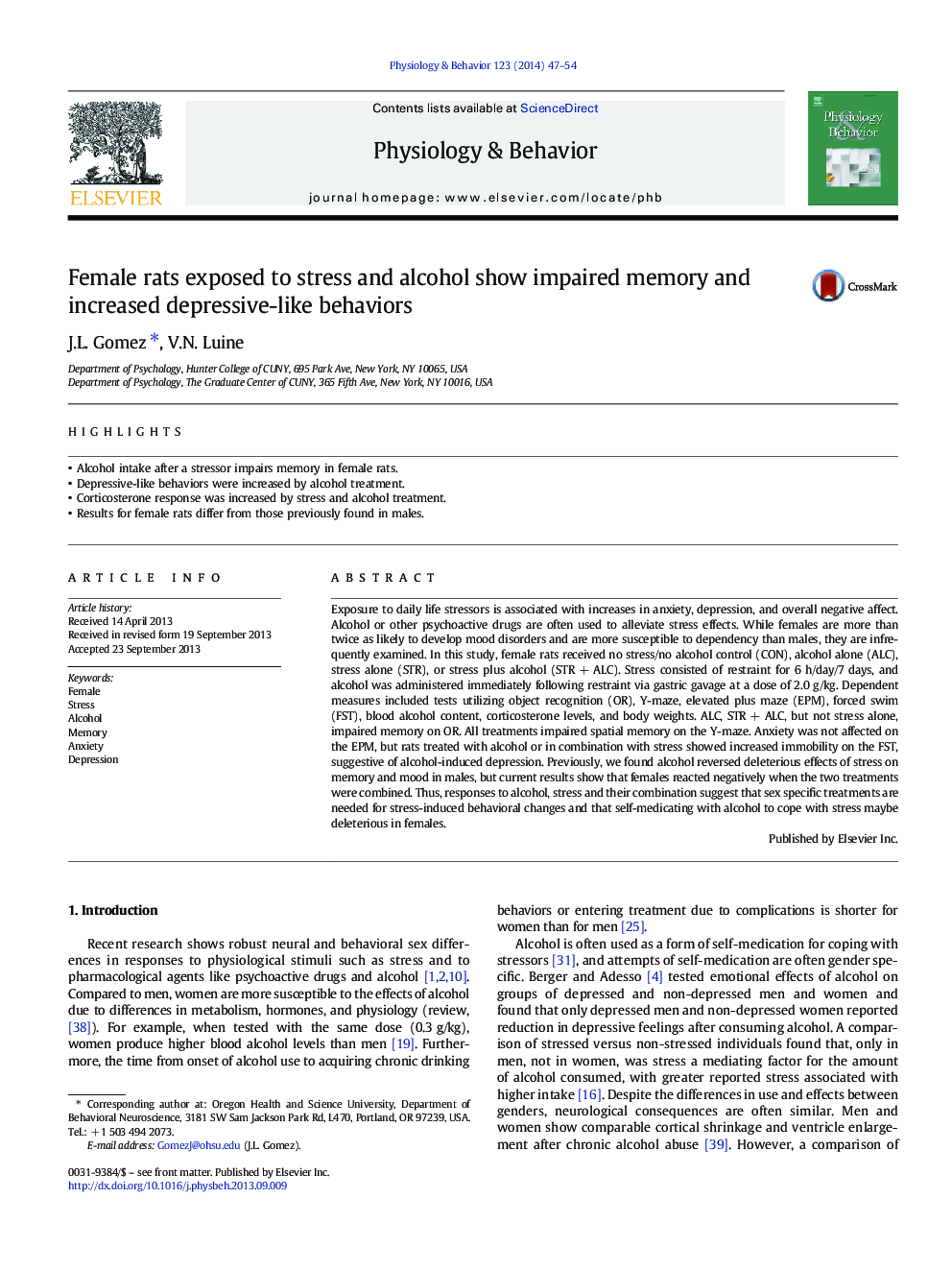| کد مقاله | کد نشریه | سال انتشار | مقاله انگلیسی | نسخه تمام متن |
|---|---|---|---|---|
| 5924545 | 1571194 | 2014 | 8 صفحه PDF | دانلود رایگان |
عنوان انگلیسی مقاله ISI
Female rats exposed to stress and alcohol show impaired memory and increased depressive-like behaviors
ترجمه فارسی عنوان
موش های ماده در معرض استرس و الکل نشان دهنده اختلال در حافظه و افزایش رفتارهای افسردگی است
دانلود مقاله + سفارش ترجمه
دانلود مقاله ISI انگلیسی
رایگان برای ایرانیان
کلمات کلیدی
زن فشار، الکل، حافظه، اضطراب، افسردگی،
موضوعات مرتبط
علوم زیستی و بیوفناوری
بیوشیمی، ژنتیک و زیست شناسی مولکولی
فیزیولوژی
چکیده انگلیسی
Exposure to daily life stressors is associated with increases in anxiety, depression, and overall negative affect. Alcohol or other psychoactive drugs are often used to alleviate stress effects. While females are more than twice as likely to develop mood disorders and are more susceptible to dependency than males, they are infrequently examined. In this study, female rats received no stress/no alcohol control (CON), alcohol alone (ALC), stress alone (STR), or stress plus alcohol (STRÂ +Â ALC). Stress consisted of restraint for 6Â h/day/7Â days, and alcohol was administered immediately following restraint via gastric gavage at a dose of 2.0Â g/kg. Dependent measures included tests utilizing object recognition (OR), Y-maze, elevated plus maze (EPM), forced swim (FST), blood alcohol content, corticosterone levels, and body weights. ALC, STRÂ +Â ALC, but not stress alone, impaired memory on OR. All treatments impaired spatial memory on the Y-maze. Anxiety was not affected on the EPM, but rats treated with alcohol or in combination with stress showed increased immobility on the FST, suggestive of alcohol-induced depression. Previously, we found alcohol reversed deleterious effects of stress on memory and mood in males, but current results show that females reacted negatively when the two treatments were combined. Thus, responses to alcohol, stress and their combination suggest that sex specific treatments are needed for stress-induced behavioral changes and that self-medicating with alcohol to cope with stress maybe deleterious in females.
ناشر
Database: Elsevier - ScienceDirect (ساینس دایرکت)
Journal: Physiology & Behavior - Volume 123, 17 January 2014, Pages 47-54
Journal: Physiology & Behavior - Volume 123, 17 January 2014, Pages 47-54
نویسندگان
J.L. Gomez, V.N. Luine,
